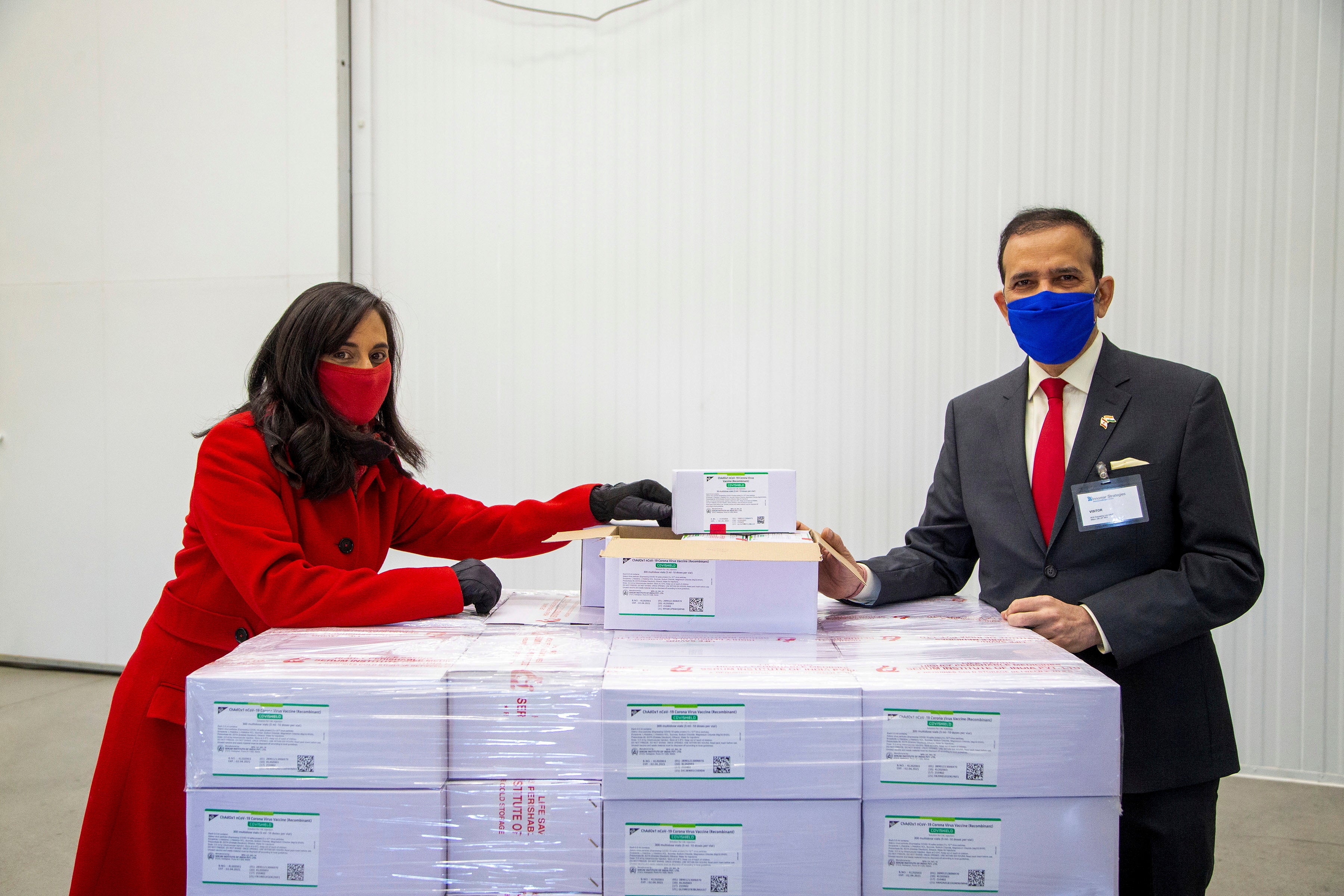Canada vaccine panel recommends 4 months between COVID doses
A national panel of vaccine experts in Canada has recommended that provinces extend the interval between the two doses of a COVID-19 shot to quickly inoculate more people, as the prime minister expressed optimism that vaccination timelines could be sped up

Your support helps us to tell the story
From reproductive rights to climate change to Big Tech, The Independent is on the ground when the story is developing. Whether it's investigating the financials of Elon Musk's pro-Trump PAC or producing our latest documentary, 'The A Word', which shines a light on the American women fighting for reproductive rights, we know how important it is to parse out the facts from the messaging.
At such a critical moment in US history, we need reporters on the ground. Your donation allows us to keep sending journalists to speak to both sides of the story.
The Independent is trusted by Americans across the entire political spectrum. And unlike many other quality news outlets, we choose not to lock Americans out of our reporting and analysis with paywalls. We believe quality journalism should be available to everyone, paid for by those who can afford it.
Your support makes all the difference.A national panel of vaccine experts in Canada recommended Wednesday that provinces extend the interval between the two doses of a COVID-19 shot to quickly inoculate more people, as the prime minister expressed optimism that vaccination timelines could be sped up.
In laying out its new guidelines, the National Advisory Committee on Immunization said extending the dose interval to four months would create opportunities to protect the entire adult population against the virus within a short time frame.
As many as 80% of Canadians over 16 could receive a single dose by the end of June simply with the expected supply of Pfizer-BioNTech and Moderna vaccines, the panel said. Second doses would begin to be administered in July as more shipments arrive, the panel said, noting that 55 million doses are expected to be delivered in the third quarter of the year.
In comparison, the federal government previously said 38% of people would receive two doses by the end of June.
The addition of the newly approved Oxford-AstraZeneca vaccine to the country’s supply could mean almost all Canadians would get their first shot in that time frame, but the federal government has not yet said how many doses of that vaccine will be delivered in the spring and how many in the summer.
“The vaccine effectiveness of the first dose will be monitored closely and the decision to delay the second dose will be continuously assessed based on surveillance and effectiveness data and post-implementation study designs,” the panel wrote.
“Effectiveness against variants of concern will also be monitored closely, and recommendations may need to be revised,” it said, adding there is currently no evidence that a longer interval will affect the emergence of the variants.
The updated guidance applies to all COVID-19 vaccines currently approved for use in Canada. Canada's provinces administer health care in the country.
The committee’s recommendation came hours after the Atlantic coast province of Newfoundland and Labrador said it will extend the interval between the first and second doses to four months, and days after health officials in British Columbia announced they were doing so.
Manitoba and Quebec also said Wednesday they will delay second doses. Ontario previously said it was weighing a similar move but would seek advice from the federal government.
Earlier Wednesday, Prime Minister Justin Trudeau said any change in public health guidance regarding the timing of the two doses could affect the speed of Canada’s vaccine rollout, as could the approval of more shots.
Canada has had a vaccine shortage until now.